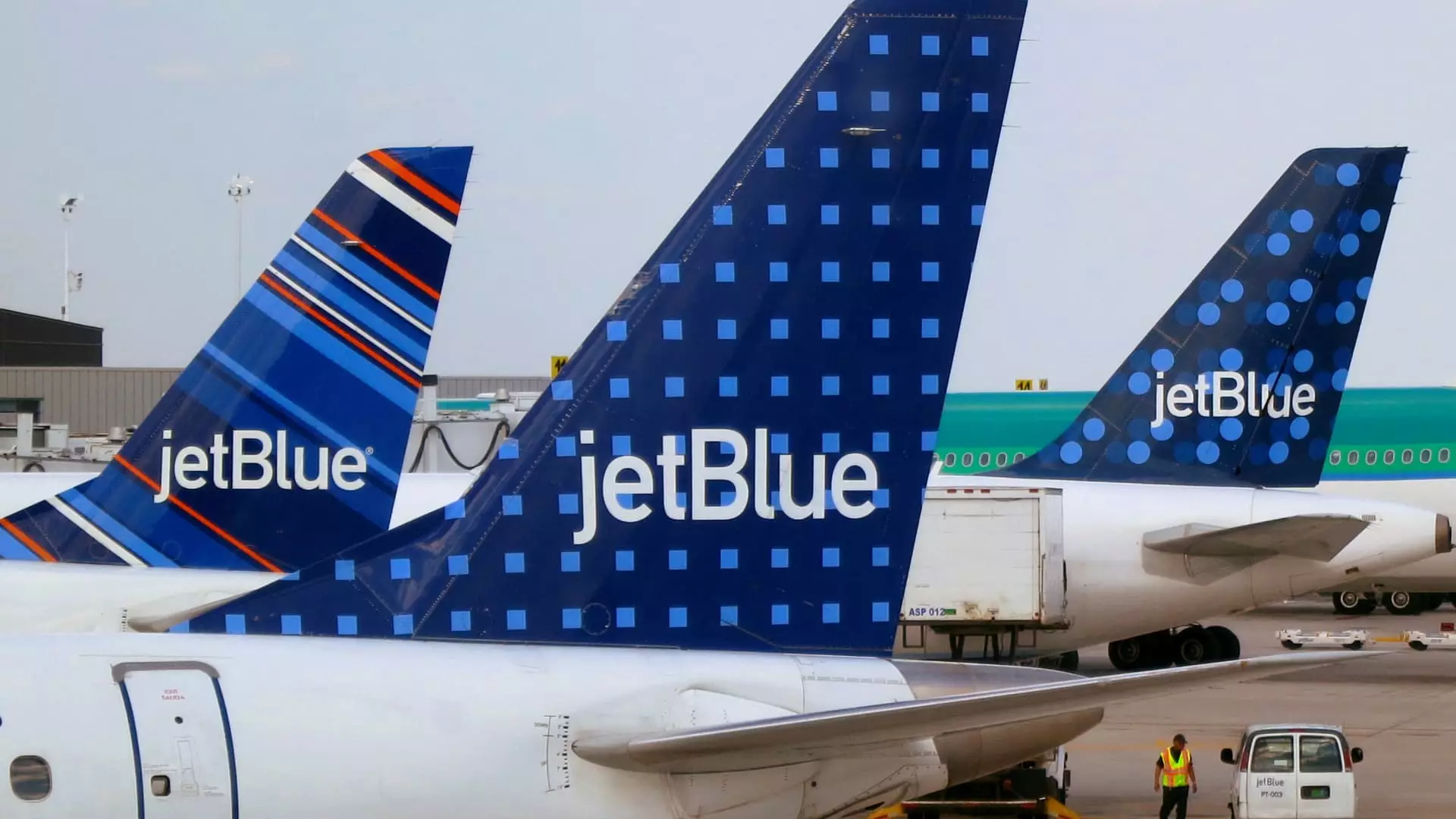The recent fine of $2 million levied against JetBlue Airways by the Department of Transportation (DOT) highlights a critical issue within the airline industry: chronic flight delays. This unprecedented penalty serves not just as punishment for JetBlue but also as a reflection of broader systemic problems facing U.S. airlines. As the DOT scrutinizes airline operations more closely, JetBlue’s situation unveils the pressing need for a re-evaluation of flight scheduling, air traffic control infrastructure, and overall airline accountability.
The DOT categorizes a flight as “chronically delayed” if it consistently arrives over 30 minutes late on more than half of its journeys, given it operates at least ten times per month. In JetBlue’s case, four specific routes between major cities were particularly problematic, with delays exceeding 145 times between June 2022 and November 2023. This reflects poorly on JetBlue’s operational management and raises questions about the airline’s commitment to customer service and reliability.
More alarming is the assertion that JetBlue accounted for more than 70% of the disruptions on these routes. Such a statistic suggests systemic issues within the airline’s scheduling practices. The DOT urged that the industry at large must align realistic flight schedules with operational capabilities, signaling that more stringent oversight may be necessary.
JetBlue’s response to the fine involved a pointed critique of the government’s air traffic control system. Company executives argued that the existing infrastructure is outdated and is in dire need of modernization. JetBlue’s position that accountability for delays also rests with the federal government raises important questions about shared responsibility in the airline industry.
While it’s valid for airlines like JetBlue to advocate for improvements in air traffic management, the crux of the issue lies in accurately assessing blame. When an airline consistently fails to adjust its operations to prevent delays, the responsibility should not only rest on external factors but also on the airline’s operational strategies. This becomes a matter of balancing regulatory compliance with effective operational practices.
Delays significantly influence the consumer experience, leading to increased frustration for passengers who expect timely arrivals. JetBlue’s recent fine might appear as a mere regulatory measure, yet it bears more significant implications for consumer trust. Airlines that are unable to meet the necessary operational benchmarks face fines, but more critically, they risk losing customer loyalty.
JetBlue reported an improvement in on-time arrivals, with figures rising from 64.9% to 71.3%. However, these statistics should not merely represent an upward trend; they must also translate to an enhanced passenger experience. Overcoming the negative impact of previous delays requires a long-term commitment to operational excellence and customer service.
JetBlue’s situation serves as an important reminder of the need for continuous improvement across the airline industry. As investigations into other airlines’ scheduling practices persist, there is a growing expectation that all carriers will be held accountable for chronic delays. The DOT’s interim scrutiny signals a potential shift in how flight operations may be overseen, including stricter penalties for repeated offenders.
On a strategic level, airlines must prioritize robust operational frameworks that effectively mitigate delays. They need to consider not just internal inefficiencies but also the interplay with external systems like air traffic control. This approach could lead to a holistic solution that benefits consumers, airlines, and regulatory bodies alike.
The $2 million fine against JetBlue Airways is more than just a repercussion for its operational shortcomings; it is a pivotal moment for the airline industry as a whole. It emphasizes the necessity for airlines to not only adjust their practices but also address systemic issues in air traffic management. In the coming years, how JetBlue and its peers respond to this challenge could redefine the standards of reliability and trust within the aviation market. Ultimately, the sector must evolve to ensure that air travel is efficient, reliable, and, above all, a positive experience for those who depend on it.

